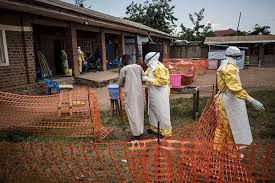The lifting of Rwanda’s national coronavirus lockdown in April saw a number of economic activities resuming but to major parts of the country including Kigali, the same restriction is likely to return due to rising Covid-19 cases.
Sosthene Musabeyezu, a private sector employee in the fashion industry, said he canot wait for life to return to normality given that the crisis has left an injurious impact on people’s ability to eke for a living.
“I do not want to see business closed and public transportation canceled once more. We need to work hard to save Kigali from becoming a ghost city due to a second outbreak,” Munyemana tells APA in an interview.
The country, which has so far tested 334,270 samples since the outbreak, has recorded a growing number of confirmed infections in the last few days with Kigali city being among the virus hotspots accounting for the biggest percentage of all confirmed cases in Rwanda.
Speaking earlier to reporters in Kigali, the Rwandan Ministry of Health, Dr Daniel Ngamije stressed that when health officials assess the situation, it goes back to the same concerns they had raised before, and that is of people becoming lax amid relaxed measures.
“When you visit these markets, you notice that people don’t wear masks properly or observe the necessary hygiene measures,” the top Rwandan government official said.
While cases in some remote rural districts especially Rubavu (North West) and Rusizi (South West) on the border with neighbouring Democratic Republic of Congo (DRC) are largely being addressed, reports by the Health ministry indicate that the spread has moved towards Kigali in recent few days.
As part of containment measures, the municipal authority in Kigali city has decided to close the two markets located in Nyarugenge district and nearby shops for one week, after they were identified as sources of new coronavirus infections.
Weeks after the country eased lockdown measures the number of people who have contracted COVID-19 has surged and the economic woes which have plagued the economy since March threaten to worsen.
In April, as restrictions were relaxed, there were an average of tens of cases reported each day.
Yet gatherings were restricted at certain levels, additional restrictions are expected to be added in the coming days, Dr Ngamije said.
Several hundreds of people have lost their jobs due to the coronavirus-induced lockdown especially in urban areas and Kigali.
Official figures paint an increasingly bleak picture for employment and wages despite continuing government support.
As part of these interventions, the National Bank of Rwanda (BNR) instructed commercial banks to ease loan repayment conditions to borrowers affected by lockdown measures, introduced an Extended Loan Facility to banks of RWF 50 billion (53 million USD), and instituted other measures targeting commercial banks.
In June this year, the government of Rwanda announced another Rwf100bn (106 million USD) to its economic recovery fund aimed at resuscitating the economy which has been hard hit by the pandemic.
Official statistics indicate that employment in eight most important economic activities differently affected by covid-19 and after the full lockdown were at different levels of recovery.
Figures released by the National Institute of Statistics of Rwanda (NISR) show that in February 2020, eight economic activities were employing 86 percent of the total employment in Rwanda.
As of May 2020, reports show that the most affected among them is “accommodation and food services activities” which lost 75 percent of employment in April and which still had a gap of 57 percent in May 2020 as compared to the February 2020 situation.
The average number of hours actually worked per week at main jobs declined in May 2020 as compared to February 2020 due to an imposed curfew, it said.
But Kigali which is the worst affected area has seen continuous easing of traffic congestion and people who are not willing to comply with social distancing measures during the coronavirus pandemic.
Since the onset of the COVID-19 crisis in Rwanda in March, a total of 2,453 cases have been reported with eight deaths.
CU/abj/as/APA


